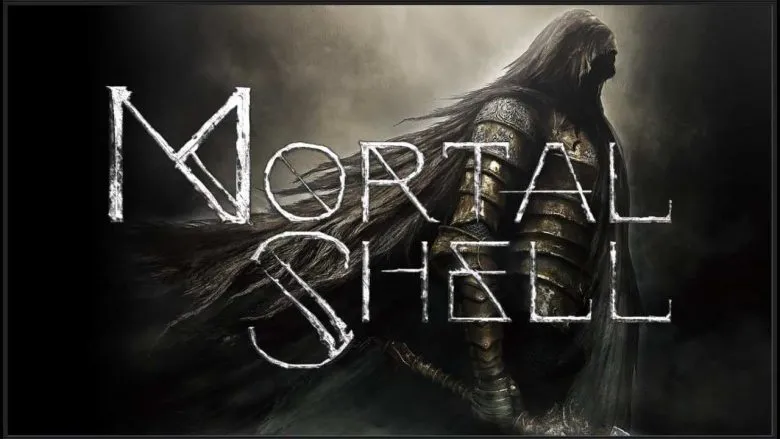
- Hello! I'm Hell and here we are with another review, this time is Mortal Shell is a new adventure that tries to pay homage to the Souls from FromSoftware.
Today it is difficult for an action role-playing game not to be totally or partially inspired by FromSoftware's Souls formula. Demon's Souls laid the foundations, Dark Souls popularized it, and titles like Bloodborne and Sekiro: Shadows Die Twice have contributed their variants in gameplay or theme. Outside of this developer we have a good handful of examples of Souls-like among which the outstanding student of Team Ninja stands out with the two NiOh, Deck13 took it to science fiction with The Surge, Code Vein tried to attract the public who are fans of anime and Salt and Sanctuary –among others- tried to take it to 2D. None of them have come close to the mastery of From, who already has callus in this genre, but over time we see better imitators.
Mortal Shell is the last of these indie Souls - it is, with a team of just 15 people - and the truth is that it does not hide it at any time, its creators know what they were going without many detours. Of course, it is not always worth with good intentions, you have to put some soul into a project of this type so that it is more than a cold copy that it imitates without knowing very well what works in a Dark Souls. Cold Symmetry has at least done their homework with their base.
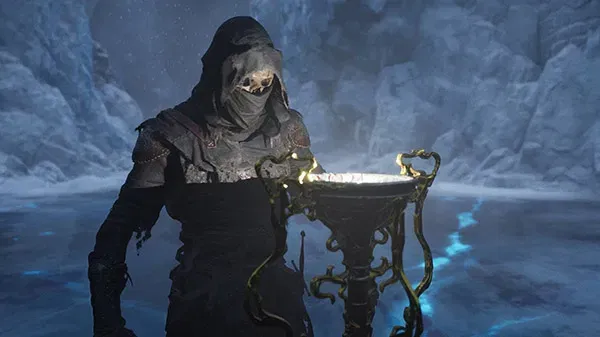
- This dead man is very alive ...
There is something that cannot be denied about Mortal Shell, and that is that it comes with a powerful visual section that we will talk about later. His world in decline may remind us of other medieval fantasies, but in reality Cold Symmetry has known how to distance itself a bit from those topics. Yes, the story or background is narrated with a dropper - although it never gives the feeling of being a universe as coherent and exciting as those of a Souls-, the locations are gloomy, with ruins, labyrinthine forests, dark swamps, there are enemies that range from the generic and goofy zombie type to the unclassifiable beasts, and we will see an equivalent to the souls that can be recovered after a death; All of this is true, but there are also subtle differences in enemy design or architecture, brushstrokes by H. R. Giger, and misshapen monsters. It is a cocktail where the elements are not original, but we could say that they are seen with another perspective or culture.
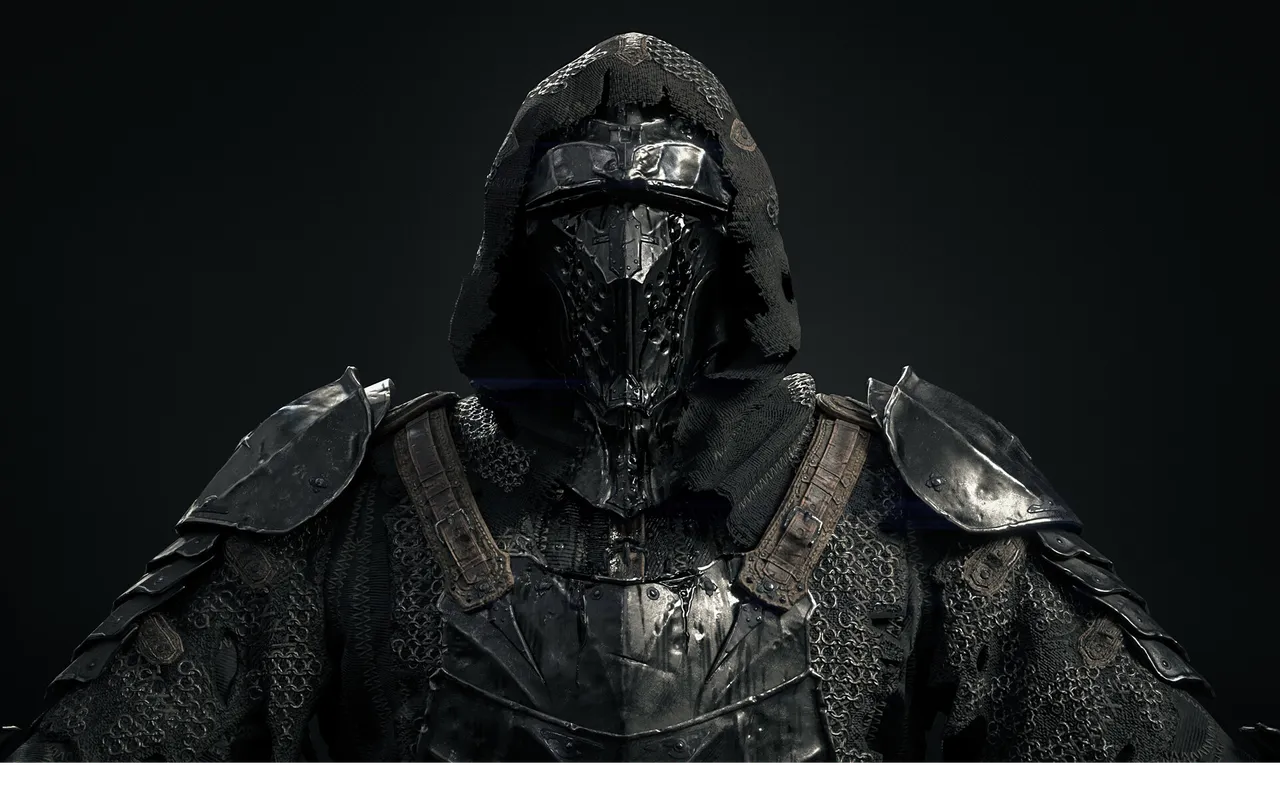
- Our body is weak, but we can have those of fallen knights, better prepared for combat.
The most commented aspect of Mortal Shell and that in fact gives the name to the game is that our gaunt character will be able to possess the body of defeated warriors, knights with certain parameters and combat styles that are much better than our initial character. There are several systems that are derived from this idea, such as strengthening the bond with its previous owners. It is an elegant way of saying that you will be able to unlock their abilities and switch between these "classes" according to whether we are interested in a body of great vitality, that causes a lot of damage or a balanced point; You may want to keep one body more during much of the game, or alternate often.
Naturally, the combat does what many other Souls-like have tried: a fast attack, another heavy but more powerful, blocks, and an evade move to escape from lockdowns or lunges. Everything will be very intuitive for those who come from a Souls, although the movement is slower and heavier than that of Dark Souls III, so it requires a little more anticipation to each movement. The combat is very tactical, you cannot squander the resistance bar and you have to look for the right moment in which an enemy has finished giving his commands and lowers his guard; the same for our attacks, if we miss a couple of attacks by miscalculating distances we can be vulnerable.
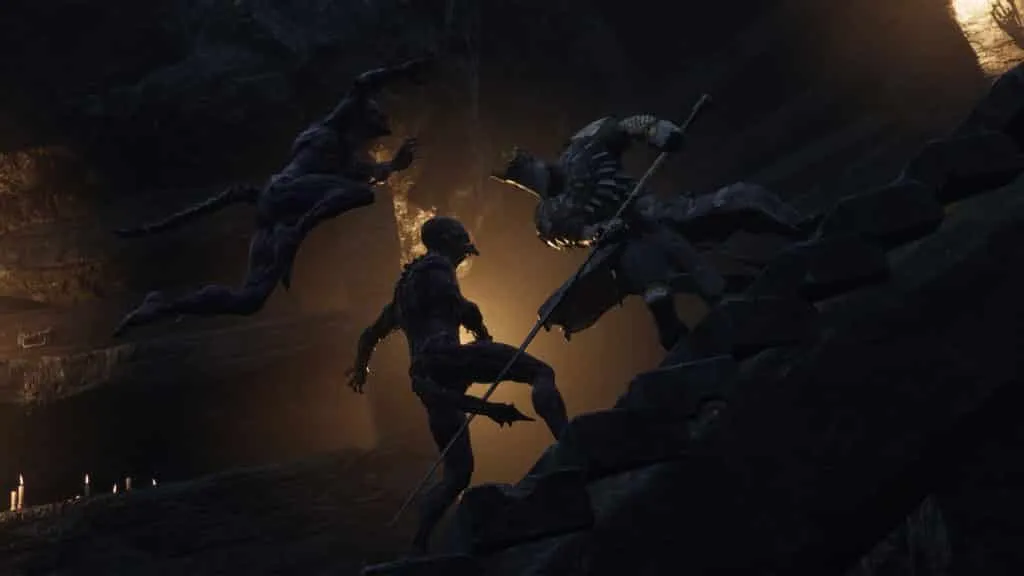
There is an important difference compared to a Dark Souls, and that is that here there is a movement that petrifies us for seconds. Although our instinct will be to avoid blows by moving backwards or to the side, hardening our body does not waste resistance and can be done in almost any situation, for example during a charged attack. Once it is taken advantage of, it serves to protect us from a possible counterattack by finishing a combo or adjusting times before a strong blow, as if it were an attack with armor in a fighting game.
It cannot be abused, there are a few moments to recharge, but it is one of the two great original contributions to the combat of this Mortal Shells.
The other is its health recovery system, and while there are certain healing objects, our most common option will be to use a talisman at the precise moment in which an enemy attacks us. It is hard to learn and at the beginning you will do this adventure –with an approximate duration of 15 hours- very uphill, but mastering this technique is essential and it greatly softens the hardness.
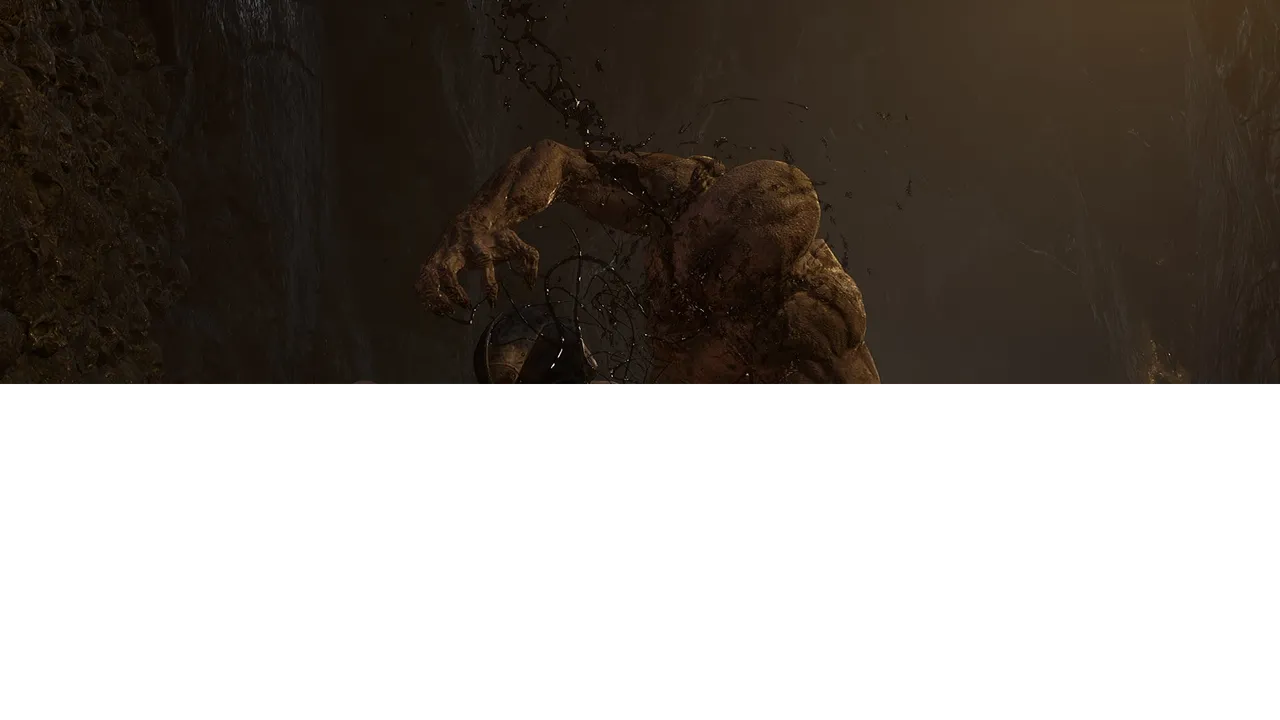
The bodies we have referenced are also used to give a second chance when we lose all health. At that moment, our weak body is thrown out of its shell and, if we manage to enter it again, we obtain all the vitality; It is a limited resource because if we die again in this game then it already means a return to the last checkpoint. And we are going to die a lot, something that surely does not surprise anyone: faced with a lonely enemy it is only a matter of playing calmly, but two or more already require concentration: the bosses forgive only a few mistakes.
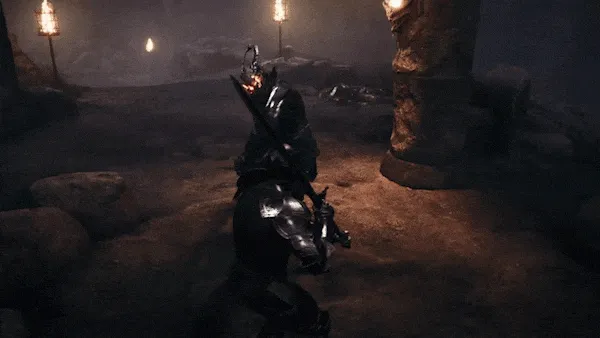
In the tradition of the 'Souls', a lone enemy is not too much trouble, but two or three already complicate the game.
In short, the mainstay of combat is similar to a Souls in the general idea but it has some new features that change the pace and tactics. It does not offer the degree of polish in collisions and the fun of FromSoftware or NiOh, but it shows that it is one of the sections where they have worked the most.
- A mysterious world, but that does not stop astonishing.
Most of the Mortal Shell gameplay videos have focused on showing enemies, bosses, and body types, but not so much on exploration. And it is not that Mortal Shell does not have more or less labyrinthine areas to explore, but that it is a more common section. The genius of the Souls is not only found in the combat system, which is not too difficult to plagiarize, but in FromSoftware's ability to design very metroidvania maps, with shortcuts, secrets and incentives to explore.
Most clones from other developers don't work as hard on this because it's much harder to get right than two or three attack animations.
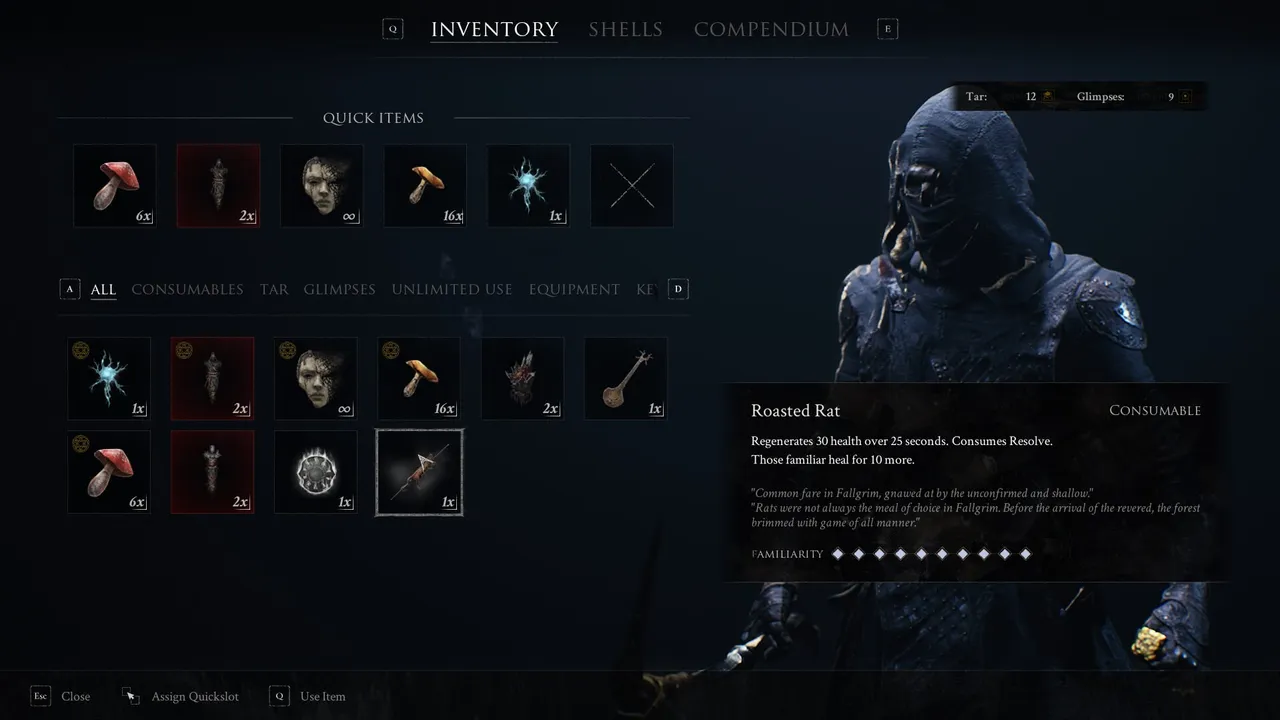
- The exploration is the least powerful aspect of the game, but the atmosphere is very good.
Thus, for example, the Mortal Shell route is not so good at guiding the user to his goal –most of the scenarios are always the same, without reference decoration-, and the routes are not those puzzles that we find in From's work, but mere corridors where we face enemies, dodge traps and collect helpful objects. There are some areas above average, but the rest fall into a more generic design, both in its playable approach and in aesthetics. And the latter does not contradict that the game is beautiful at times from a technical point of view, with good modeling, overwhelming atmosphere and games of lights; runs on Unreal Engine, so you can expect good performance and good effects. But that is not everything, once the impact of each area has passed, the limitation of experience or budget becomes more evident.
There are some other issues that prevent it from being rounder. Artificial intelligence is a bit basic - without detracting from its lethality - and one can be exploited in our favor if we cheat a bit. The weapons are also unbalanced, which means that in practice we will not be as free to choose the one we want. The music is quite absent and the sound effects are just fine, all this helps the atmosphere but it wouldn't have hurt to give the sound prominence either.

The art is dark fantasy, but less gothic than Dark Souls. The only problem is that we have seen many similar games, and many more charismatic.
Mortal Shell is probably one of the best imitators of Souls in the indie arena, with all that that implies. It is cruel to make so many comparisons with FromSoftware games because they play in another league - not even other more resourceful studios have overshadowed the Japanese team - but it is no less true that Cold Symmetry sought to make its RPG by looking sideways at these games. There are aspects that have developed well, especially the combat, the air of evil that is breathed and its cryptic history; However, underneath this facade, neither its background is as exciting to investigate as in a Dark Souls, nor the playable design lives up to the myth. It's as good as a small project that pays homage to modern classics with the limitations of a rookie studio can be.
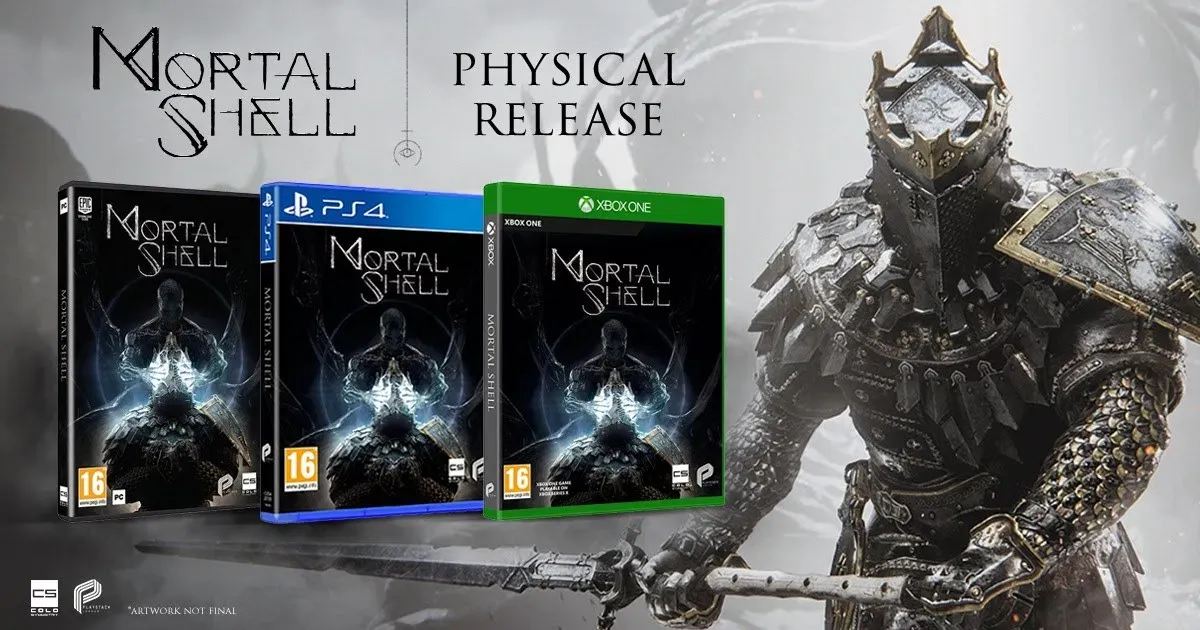
If you liked it, don't forget to upvote and comment! Do you want to continue seeing more video game post follow me, I'm always up to date with what's new and some retro! stay tuned!

🎮 LoL/LoR/TFT user: CorreoInfernal